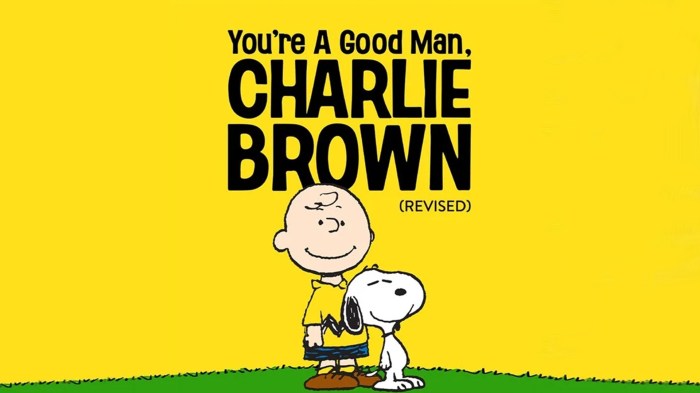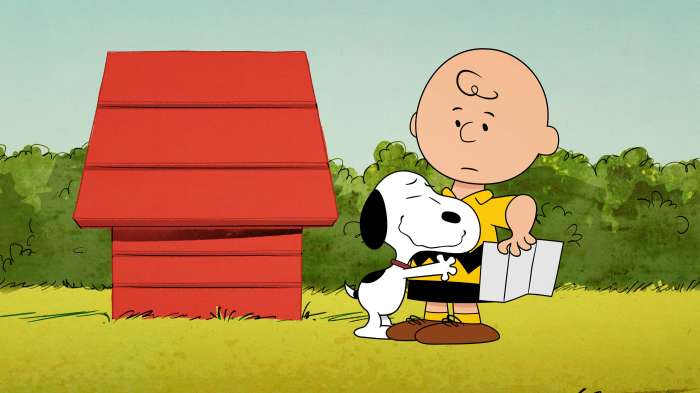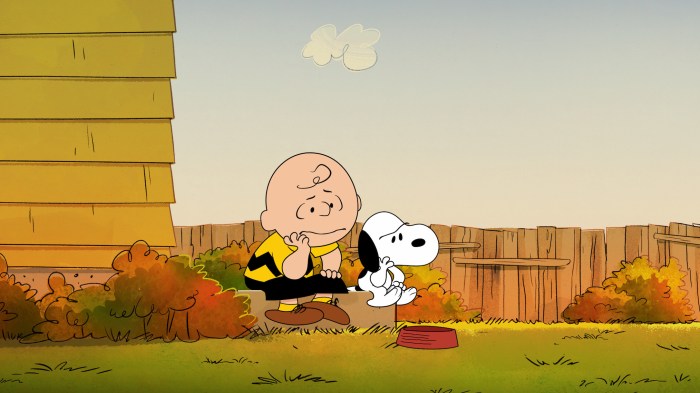Sally’s monologue from charlie brown – Delving into the depths of “Sally’s Monologue” from “Charlie Brown,” we embark on a literary exploration that unravels the complexities of human emotion, relationships, and the journey of self-discovery.
Sally’s poignant monologue, a testament to the complexities of childhood, love, and rejection, offers a profound insight into the human psyche.
Introduction
In the beloved play “Charlie Brown,” Sally Brown delivers a memorable monologue that encapsulates her childlike innocence, frustration, and longing for attention. This monologue occurs during the Valentine’s Day sequence of the play, providing a poignant and humorous exploration of her unrequited crush on Linus van Pelt.
The monologue is significant as it reveals Sally’s vulnerability and her struggle to navigate the complexities of childhood relationships. It also serves as a commentary on the universal themes of love, rejection, and the desire for acceptance.
Context, Sally’s monologue from charlie brown
The monologue takes place in a classroom, where Sally is seated at her desk, dejectedly watching as the other children exchange Valentine’s Day cards. She has been eagerly anticipating this day, hoping to receive a card from Linus, but she has been disappointed.
Character Analysis of Sally
Sally Brown is a complex and multifaceted character in the Peanuts comic strip. She is the younger sister of Charlie Brown and exhibits a range of personality traits that make her both endearing and frustrating.
Personality and Motivations
Sally is a precocious and imaginative child with a strong sense of entitlement. She believes that she deserves the best of everything and is often quick to complain when things do not go her way. She is also highly competitive and often tries to outdo her brother, Charlie Brown.
Feelings Towards Charlie Brown and Other Characters
Sally has a complicated relationship with her brother, Charlie Brown. She loves him but also resents him for his perceived superiority. She is often jealous of the attention that Charlie Brown receives from their parents and friends. Sally also has a crush on Linus van Pelt but is too shy to admit it.
Insecurities and Self-Esteem Issues
Despite her outward confidence, Sally is deeply insecure and has low self-esteem. She is constantly comparing herself to others and often feels inadequate. She also has a tendency to withdraw into herself when she feels overwhelmed.
Themes and Motifs

Sally’s monologue explores several significant themes through the use of symbols and imagery. Love, rejection, and self-discovery are central to her experiences and shape her perspective on the world.
Love
- The Red Dress:Sally’s obsession with her red dress symbolizes her desire for attention and admiration. She believes that wearing the dress will make her more attractive and desirable.
- Charlie Brown:Sally’s unrequited love for Charlie Brown represents her longing for affection and connection. Her persistent pursuit of him, despite his lack of interest, highlights the pain and frustration of unfulfilled love.
Rejection
- The Kite:The kite that Sally fails to fly symbolizes her feelings of inadequacy and failure. Her inability to control the kite represents her powerlessness and the disappointment she experiences when her expectations are not met.
- The Dance:Sally’s fear of being rejected at the dance reveals her insecurity and vulnerability. Her reluctance to participate in the event reflects her fear of judgment and social isolation.
Self-Discovery
- The Mirror:The mirror in Sally’s room represents her self-reflection and her search for identity. She uses the mirror to admire herself, but also to confront her flaws and insecurities.
- The Monologue:The monologue itself is a form of self-discovery for Sally. By expressing her thoughts and feelings, she gains a deeper understanding of herself and her place in the world.
Literary Devices

Sally’s monologue is rich in literary devices that enhance the meaning and impact of her words. These devices include metaphor, simile, irony, humor, and pathos.
Metaphor and Simile
Sally frequently uses metaphors and similes to create vivid imagery and make her points more relatable. For example, she describes her relationship with Linus as a “tug-of-war” and compares her desire for attention to a “hunger” that never goes away.
Irony
Sally’s use of irony is particularly effective in conveying her frustration and disillusionment. For example, she sarcastically refers to herself as a “princess” and complains that she is “so spoiled” when in reality, she feels neglected and unloved.
Humor and Pathos
Sally’s monologue is also characterized by a blend of humor and pathos. Her self-deprecating jokes and exaggerated complaints can elicit laughter from the audience, but they also reveal her underlying sadness and loneliness. By combining humor and pathos, Sally creates a complex and emotionally resonant character.
Historical and Cultural Context: Sally’s Monologue From Charlie Brown

Sally’s Monologuewas written in the 1950s, a time of significant societal change and upheaval in the United States. The post-war era brought with it a surge in economic prosperity and a shift in traditional gender roles, as women increasingly entered the workforce and sought greater independence.
The monologue reflects these societal tensions, as Sally grapples with her own desires and expectations in a world that is rapidly changing around her. Her longing for a traditional romantic relationship and her frustration with the limitations placed on women by society are both products of the era in which she was created.
Reflection of Societal Attitudes
- Sally’s monologue reveals the prevailing attitudes towards women and relationships in the 1950s. Women were expected to be subservient to men, prioritize their domestic duties, and find fulfillment in marriage and motherhood.
- Sally’s desire to be loved and accepted by a boy reflects the societal pressure on women to conform to traditional gender roles.
- Her frustration with the limitations placed on her as a woman reflects the growing dissatisfaction among women with the status quo.
Impact on Popular Culture
- Sally’s Monologuehas had a lasting impact on popular culture, becoming a touchstone for feminist discourse and a relatable expression of female frustration.
- The monologue has been referenced and parodied in numerous works of art, literature, and film, demonstrating its enduring legacy.
- It has also inspired countless women to speak out against gender inequality and to demand greater opportunities and respect.
Popular Questions
What is the significance of Sally’s monologue within the play?
Sally’s monologue serves as a pivotal moment in the play, revealing her innermost thoughts and feelings, and providing a deeper understanding of her character and motivations.
How does the monologue explore the theme of love?
The monologue delves into the complexities of love, examining Sally’s unrequited feelings for Charlie Brown, her longing for connection, and her struggles with rejection.
What literary devices are employed in the monologue?
The monologue utilizes various literary devices, including metaphors, similes, and irony, to enhance the meaning and impact of Sally’s words, creating a vivid and emotionally resonant experience.
